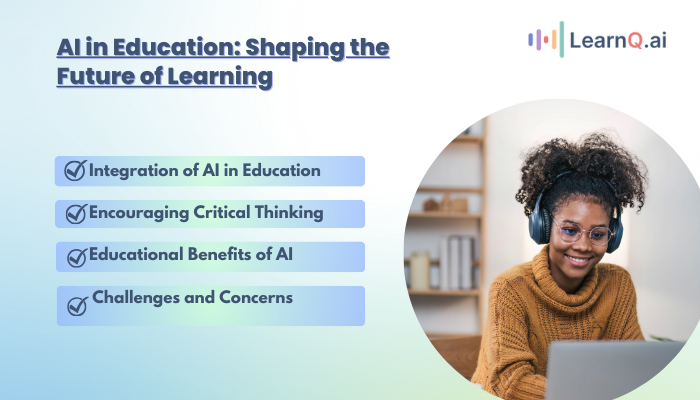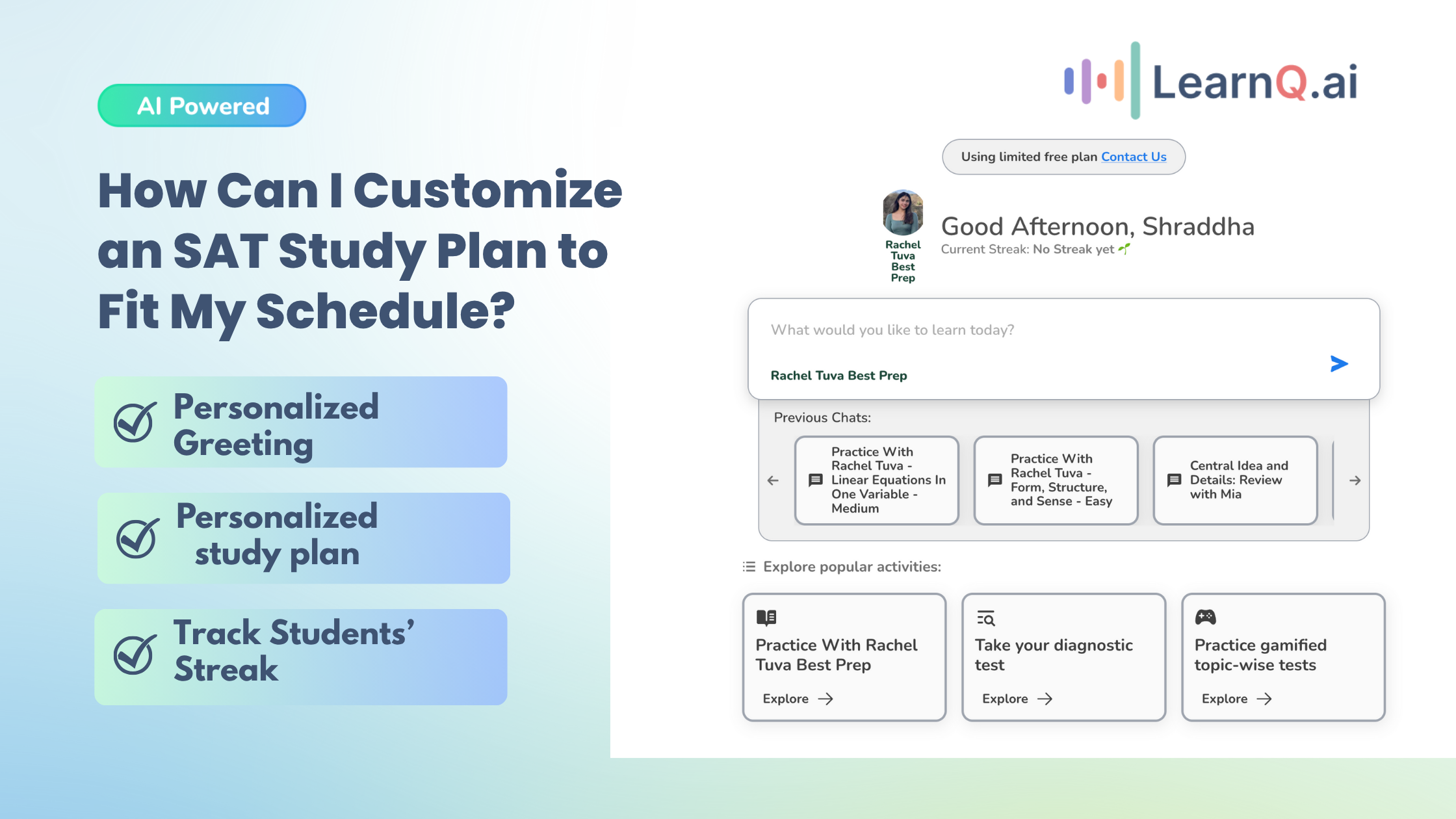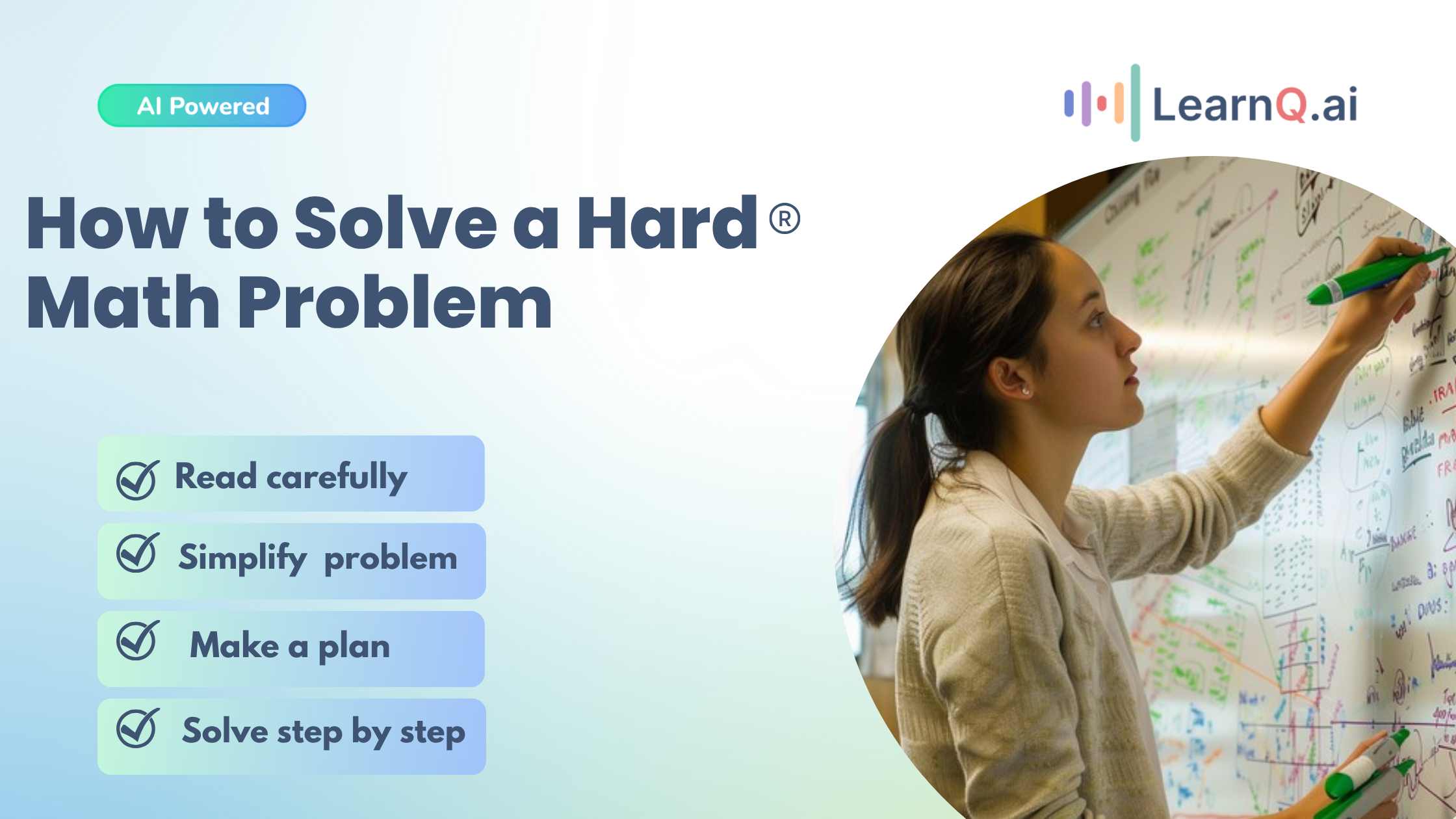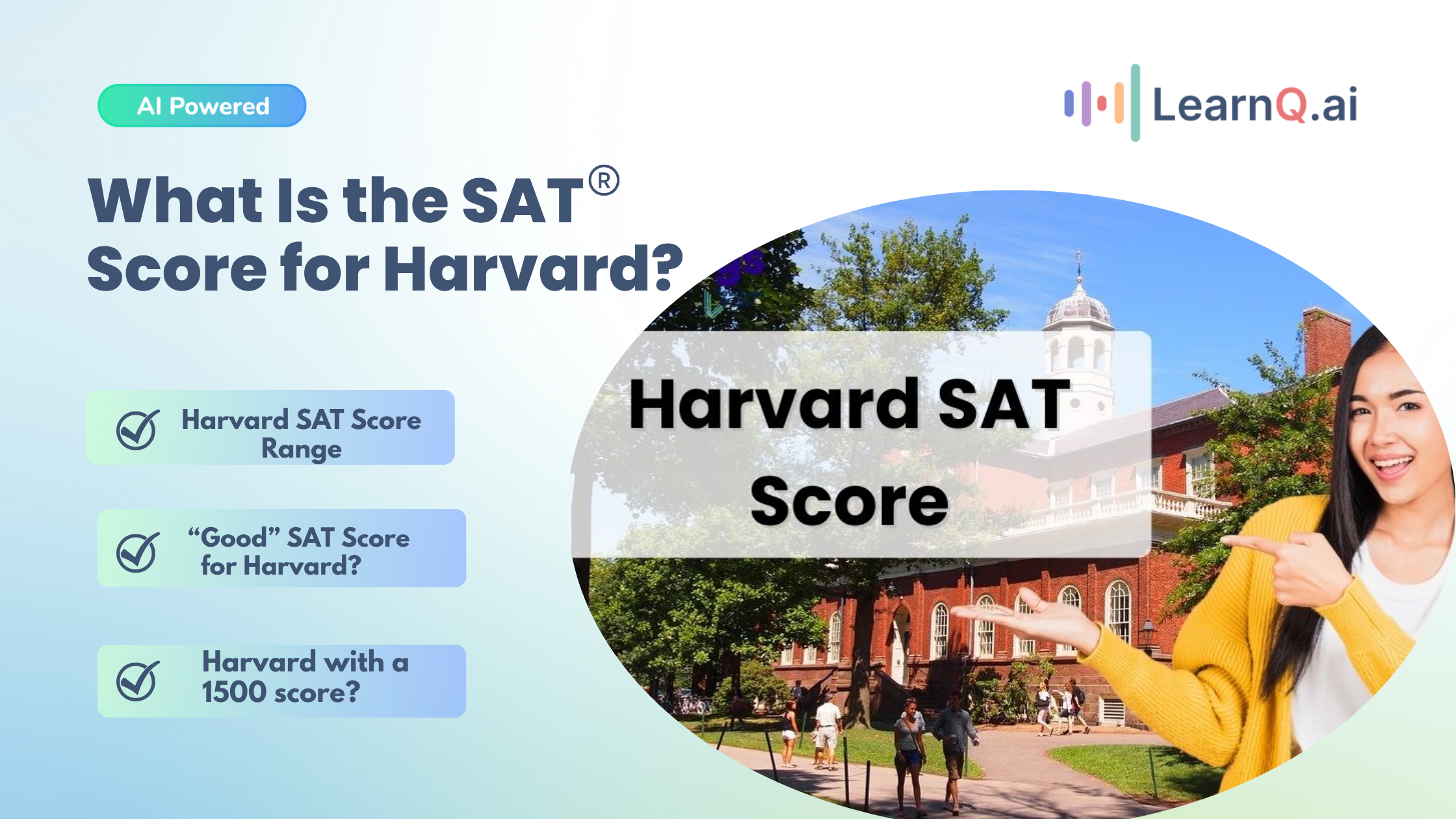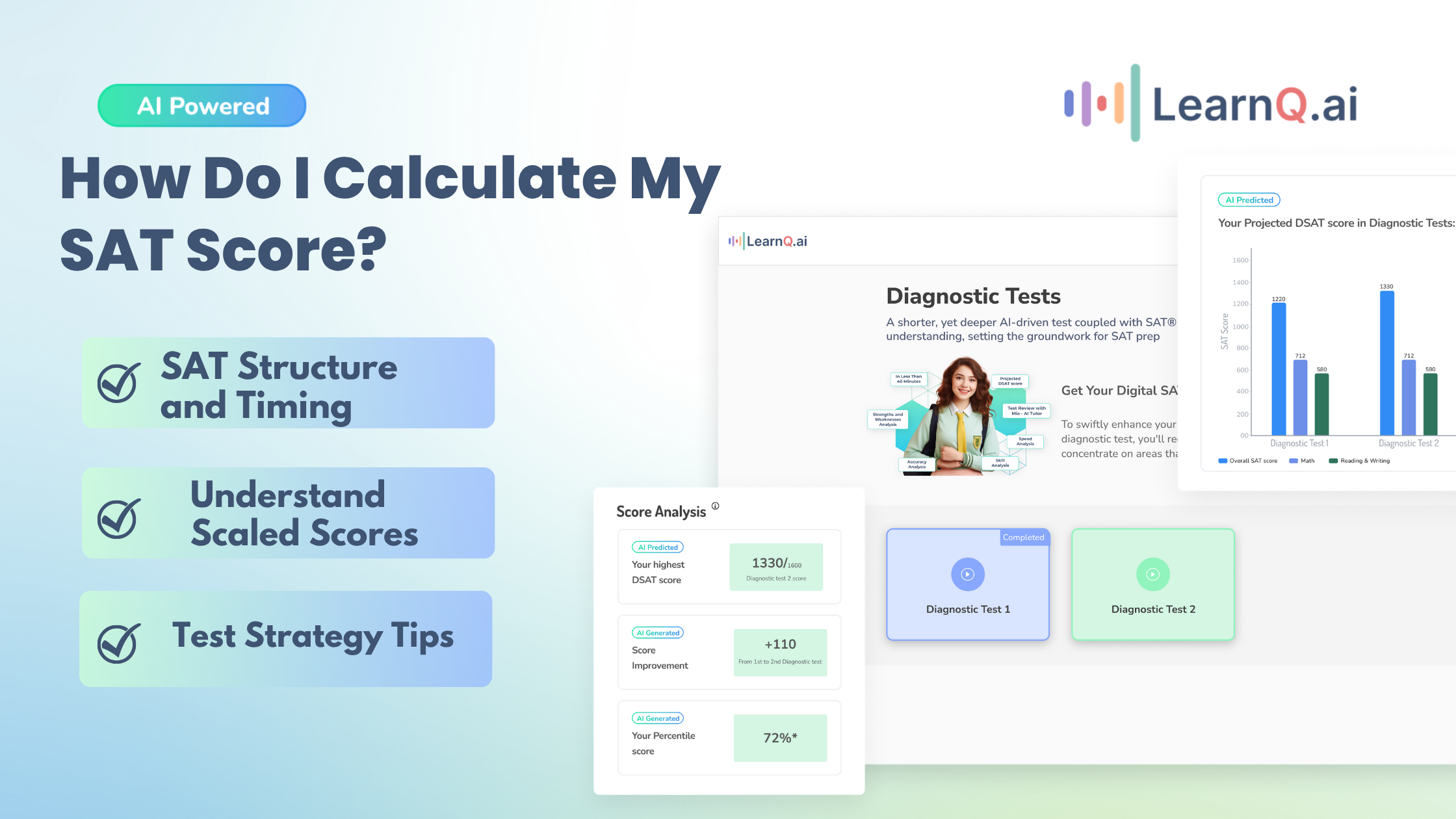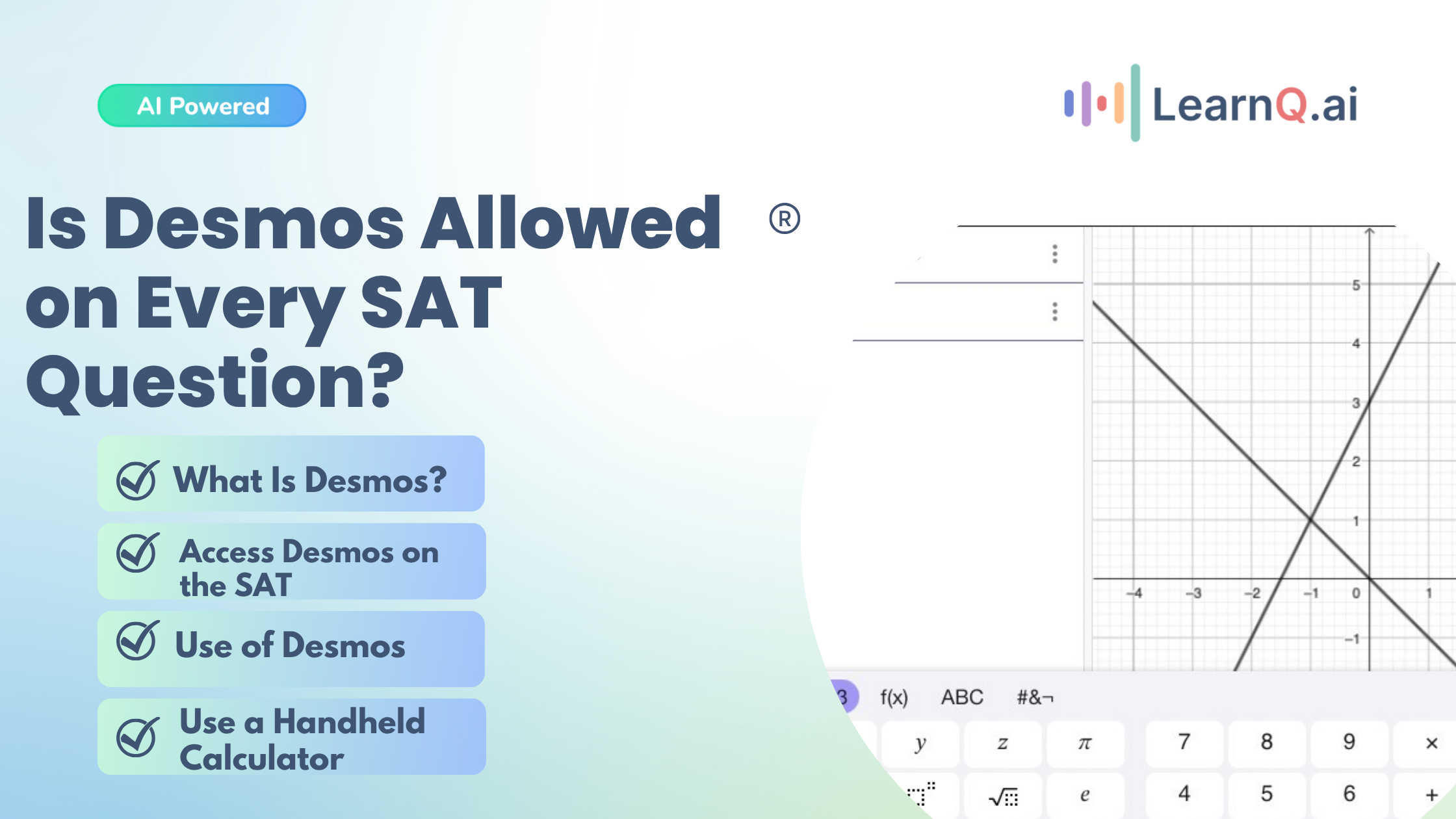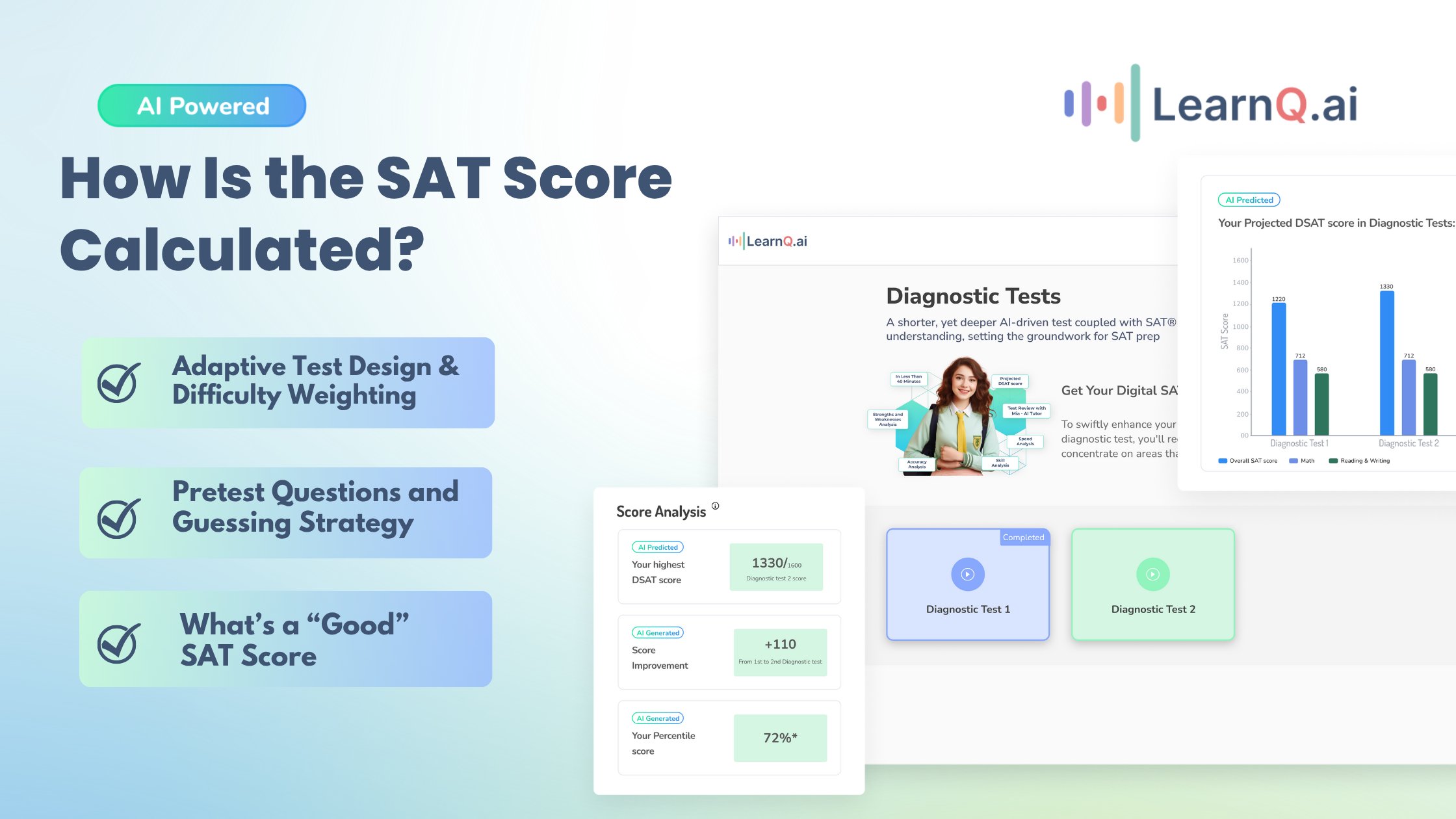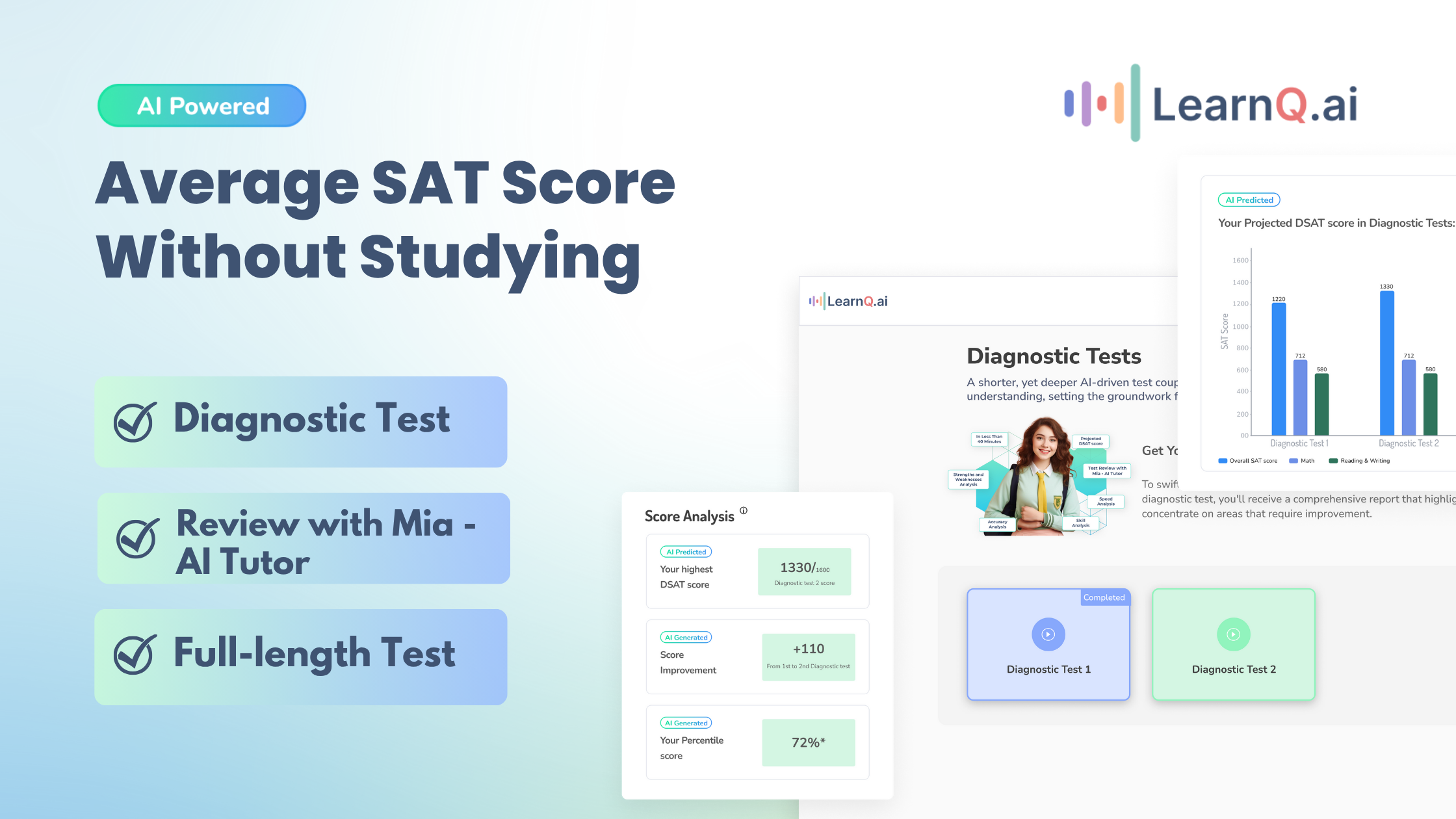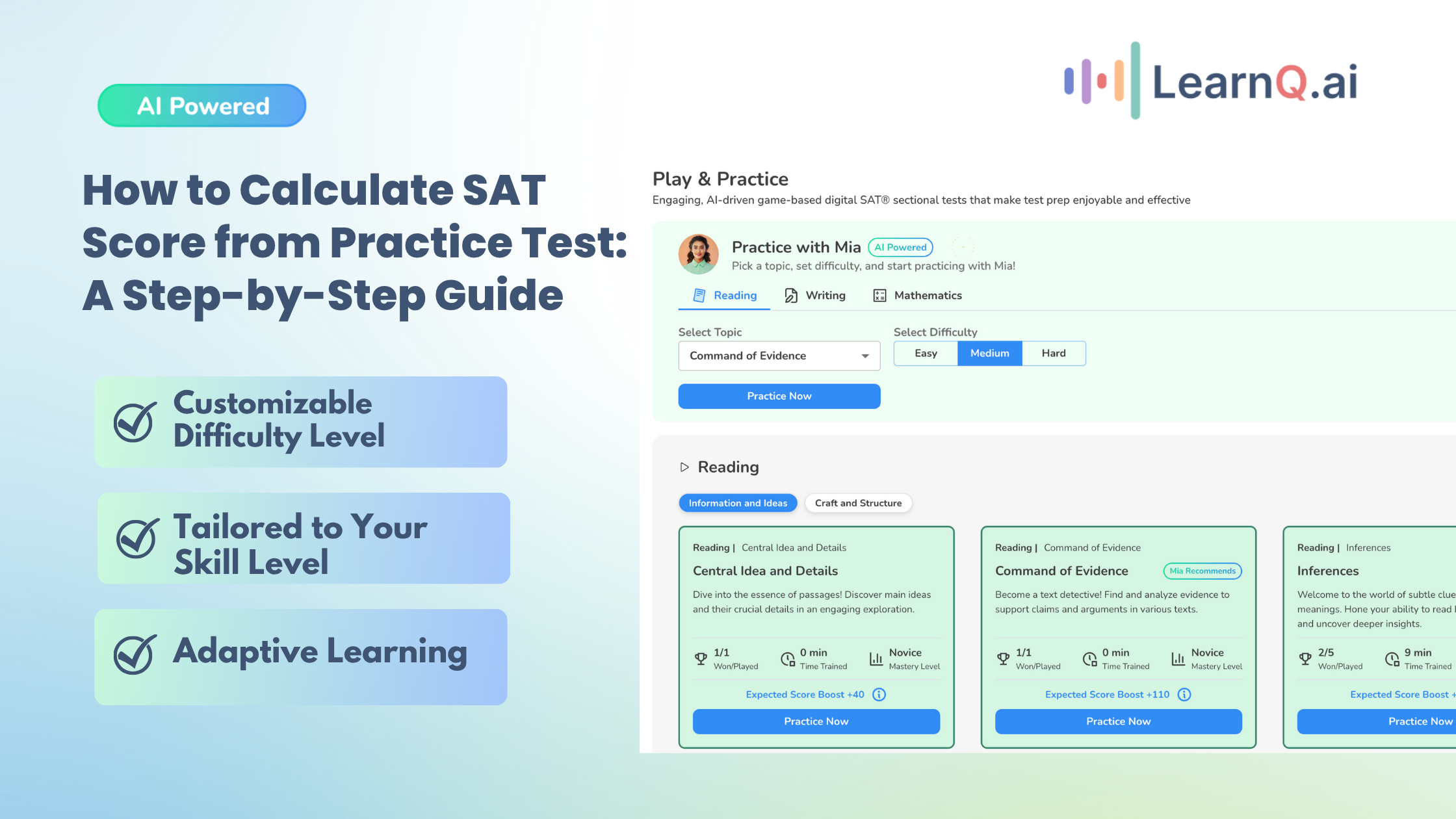AI articles for students have become essential as artificial intelligence (AI) transforms education worldwide. AI tools help create personalized learning experiences, enhance student engagement, and provide data-driven insights for curriculum improvements.
In this blog, we explore how AI articles for students reveal AI’s potential to revolutionize learning, improve teaching outcomes, and streamline educational processes.
LearnQ.ai is Powered by VEGA AI—Is your Institute Next?
Give students a Duolingo-style test-prep platform with Shopify-level customization for tutors and institutes.
What is AI and How is it Applied in Education?
Artificial intelligence (AI) refers to the ability of machines to perform tasks that typically require human intelligence, such as problem-solving, reasoning, and decision-making. In education, AI articles for students highlight how AI is applied to improve learning experiences, tailor teaching methods, and automate administrative functions.
AI tools like machine learning, natural language processing, and data analytics are integrated into educational technologies to support both students and educators.
According to a report by the National Education Association (NEA), 61% of educators believe that AI can potentially increase student engagement and motivation.
You can learn about AI-driven tutoring platforms, intelligent content delivery systems, and data-driven insights that are revolutionizing the classroom from AI articles for students. These innovations are essential for shaping the future of education.
AI’s Role in Modern Schools
AI is playing an increasingly important role in modern schools. According to AI articles for students, AI customizes learning materials, tracks student progress, and provides real-time assistance to teachers and students.
As digital learning continues to rise, AI articles for students show how AI delivers content in ways that resonate with individual learning styles, making education more efficient and accessible.
Also Read: AI Tools Examples Transforming Education
Enhance your Digital SAT study routine with AI-driven insights and personalized practice tests.
Importance of AI in Shaping Student Learning
AI has a transformative impact on student learning, as explored in many AI articles for students. Personalized learning experiences, adaptive teaching methods, and reduced administrative burdens allow teachers to focus on building meaningful connections with students.
The future of education is increasingly defined by AI’s ability to create tailored learning paths and improve teacher-student collaboration.
1. Personalized Learning
One of the key focuses of AI articles for students is personalized learning. AI-powered platforms analyze student performance and adjust the difficulty of assignments based on individual strengths and weaknesses. This personalized approach ensures that students receive the appropriate content at the right time, improving learning outcomes.
With personalized study plans, AI helps students retain information and stay on track with their academic goals. AI articles for students often highlight how AI allows students to learn at their own pace, revisiting challenging concepts and advancing only when they feel ready.
2. AI-Powered Tutoring and Assistance
AI articles for students frequently discuss the benefits of AI-powered tutoring systems, which provide 24/7 support. Virtual tutors, such as Mia for SAT prep, assist students with complex concepts and questions. AI-powered platforms like LearnQ.ai also offer instant feedback on quizzes and assignments, helping students improve faster.
Furthermore, LearnQ.ai provides 24/7 virtual tutors and instant feedback, helping students master difficult subjects in real-time without the need for human intervention.
In addition, AI articles for students highlight how AI systems like VEGA AI automate grading, reducing human error and allowing teachers to focus on fostering student growth.
3. Enhancing Student Engagement
AI is transforming student engagement, as detailed in AI articles for students. Gamified learning platforms powered by AI introduce game-like elements into lessons, making learning more enjoyable. AI also integrates with Virtual Reality (VR) and Augmented Reality (AR), creating immersive experiences that make learning more tangible and memorable.
Students develop critical thinking and problem-solving skills through AI-powered interactive tools, fostering a deeper understanding of the material. These tools make lessons more engaging and enhance learning outcomes, as emphasized in AI articles for students.
Also Read: New Feature Launch: Build Your Own AI Avatar
4. AI for Special Needs Education
AI is promoting inclusivity in education, especially for students with disabilities. AI articles for students outline the benefits of assistive technologies like speech-to-text systems and individualized learning plans. These tools ensure that special needs students receive the support they need to succeed.
AI also enables better accessibility for students with hearing or visual impairments, transforming their engagement with educational content.
5. AI in Career and College Guidance
As many AI articles for students have noted, AI tools are becoming indispensable for career and college guidance. AI-powered platforms analyze student strengths, interests, and career goals to suggest personalized career paths.
These systems provide students with insights into potential job opportunities, making planning their academic futures easier.
AI university matching tools help students identify schools that align with their academic and financial profiles. Predictive analytics for college admissions, highlighted in AI articles for students, give students realistic expectations of their application outcomes.
6. AI in Classroom Management
AI is simplifying classroom management by automating tasks like grading and attendance tracking. AI articles for students describe how AI helps teachers monitor student performance and intervene early when issues arise.
Behavioral analytics also assist educators in identifying patterns of disengagement, helping them address potential problems before they escalate.
AI frees up teachers’ time by automating administrative tasks, allowing them to focus more on instruction, as explained in various AI articles for students.
7. Challenges and Ethical Considerations
Despite its many benefits, AI in education presents challenges. AI articles for students frequently discuss concerns over data privacy, as AI systems collect large amounts of student data. Ensuring that this data is used responsibly and securely is essential to maintaining trust in AI technologies.
Other challenges include AI’s potential impact on teacher-student relationships and bias in AI algorithms. AI articles for students emphasize the importance of monitoring AI systems to ensure fairness and equity in education.
8. Future Prospects of AI in Education
As we look to the future, AI articles for students predict that AI will continue to drive educational innovation. Classrooms will become more data-driven, interactive, and tailored to individual student needs. AI will also benefit lifelong learning as individuals continuously reskill and upskill in response to changes in the job market.
Preparing students for an AI-driven future is another priority.
AI articles for students stress the need for education systems to equip students with the skills necessary to adapt to AI-dominated workplaces.
Also Read: Rising Trends of AI in EdTech
AI and Teacher Professional Development
AI is transforming the way teachers approach their professional development by offering innovative tools and insights. From personalized training to real-time support, AI helps educators grow their skills and adapt to the evolving demands of modern classrooms.
Here are some points to keep in mind.
- Personalized Training Programs
AI offers tailored training resources based on teachers’ specific needs and teaching styles, ensuring a customized approach to professional development. - Data-Driven Insights
AI-driven platforms analyze classroom performance data to highlight areas where teachers may require additional training, such as classroom management or subject-specific techniques. - Targeted Feedback
Educators receive focused feedback, allowing them to improve specific skills and enhance their teaching effectiveness over time. - Real-Time Support
Virtual coaching systems powered by AI provide instant suggestions and resources during lessons, enabling teachers to adjust their strategies on the go.
Benefits of Continuous Professional Development with AI
AI-driven professional development empowers teachers to stay ahead in a rapidly changing educational landscape. By promoting continuous learning, AI ensures that educators remain adaptable and effective in their teaching practices.
- Stay Updated with the Latest Trends
AI helps educators stay current in their field by keeping up with evolving methodologies, technologies, and best practices in teaching. - Ongoing Learning Culture
By fostering a culture of lifelong learning, AI contributes to the continuous improvement of both teachers and educational outcomes in schools.
Enhance your Digital SAT study routine with AI-driven insights and personalized practice tests.
The Impact of AI on Educational Equity
AI has the potential to bridge educational gaps by providing tailored resources and support to underserved communities. Using data analytics, AI can identify students needing additional assistance, whether due to learning disabilities, language barriers, or socio-economic challenges.
This proactive approach ensures that no student falls behind, as educators can intervene early with the appropriate resources.
Additionally, AI can offer personalized learning experiences that cater to diverse learning needs, promoting inclusivity in the classroom. For example, adaptive learning technologies can adjust content difficulty based on individual student performance, ensuring that each learner receives the right level of challenge.
Moreover, AI programs can be designed to reach remote or under-resourced areas, making quality education more accessible to all. By leveraging AI in this way, the education system can work towards greater equity, ensuring that every student has the opportunity to succeed, regardless of their background.
LearnQ.ai is powered by VEGA AI—Is your institute next?
Offer students a Duolingo-style test-prep platform with Shopify-level customization for tutors and institutes.






Conclusion
As discussed in numerous AI articles for students, AI is revolutionizing education by offering new possibilities for personalized learning, student engagement, and efficient classroom management.
While challenges remain, the benefits of AI in education are undeniable. By embracing AI technologies, the education sector can create more inclusive, effective learning environments that prepare students for the future.
AI articles for students will continue to play a pivotal role in understanding how AI shapes education and the opportunities it offers to both students and educators.
Ready to experience the future of education? AI-powered platforms like LearnQ.ai are revolutionizing how students learn, making it personalized, engaging, and efficient.
Sign up today for personalized tutoring, interactive learning, and smarter study tools that will help you achieve academic success like never before!

